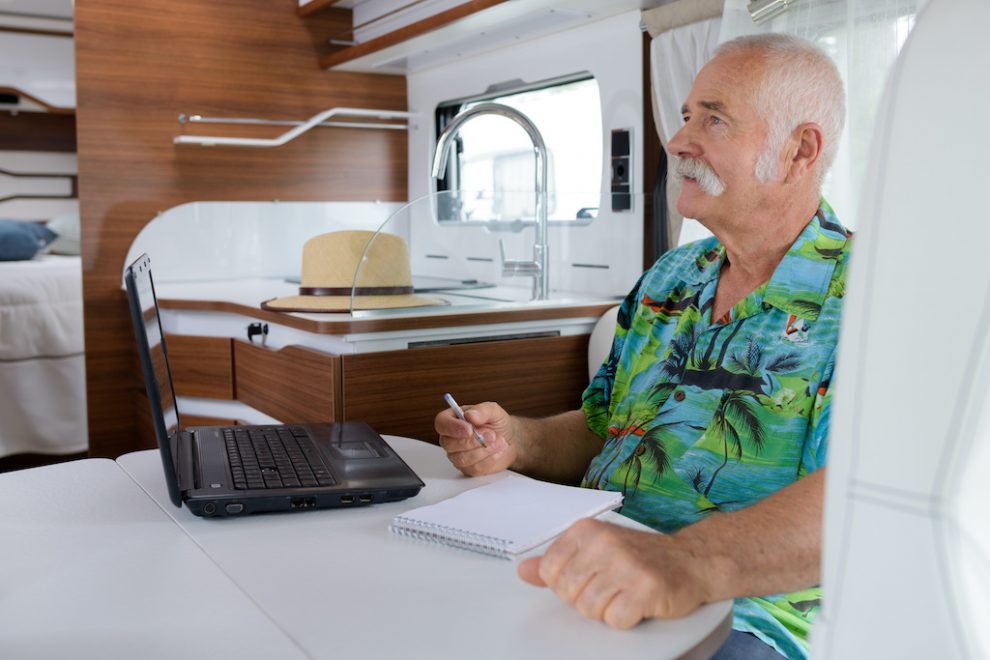What Is The Best RV Vehicle Length?
The RV industry is full of options for potential buyers. This can make buying an RV Vehicle more difficult for the undecided. Once you decide on buying an RV, there will be some important questions about the RV you will be searching for. The type of RV will likely be first; do you want a Class A, Class C, travel trailer, or a fifth wheel? The price will be another determining factor, as will floor plans and preferred manufacturers. With all these questions to answer, it is important to have decided on one other very important factor: what length RV should I buy?
Safety and legal considerations
Before deciding on what length RV you should buy, there are some considerations. It’s easy to say you want a 40-foot RV for the space, but is this actually the RV that you should buy?
Are you a competent driver?
When it comes to large RVs, your comfort and experience with towing and driving should be considered. Towing a large RV is a huge responsibility that shouldn’t be overlooked! What length RV should I buy and what length RV am I comfortable driving should be asked together. Safely manoeuvring a 45′ Class A motorhome or 38′ towable trailer isn’t like driving your car around. It takes lots of practice and patience to become competent. Just because you want a large RV doesn’t mean it’s right for you.
This isn’t to discourage people from buying a large RV if that’s what they want, but to emphasize the importance of being comfortable to safely operate one. If you don’t have the experience, consider a driving course or spending some hours with an experienced driver before packing up the family and hitting the road.
Large RVs are fun to walk through at dealers and can easily change your mind on what you want. Once on the road, that large RV can become a stressful, exhausting responsibility. If your trips are full of white knuckle driving and stress, it can ruin RVing for you pretty quickly. Using an RV-specific trip planner like RV VEHICLES will help ensure you are on a safe route for your RV.
What are your tow RV vehicle’s capabilities?
Not only do you have to be able to handle a large RV, but your tow vehicle must also be able to safely do so. Some people choose their vehicle first and match an RV; others choose their RV and then purchase a vehicle to suit. Either way, the two must be compatible.
If you are dead set on a 12,000-pound trailer and own a Toyota Tacoma, you have a problem. You have to consider if your current vehicle is safely able to tow the RV you want, and if not, are you willing to upgrade your vehicle?
If your current vehicle is the vehicle you will use to tow, know the towing specs that it can safely and legally tow. With these numbers, you will be able to narrow your search.
What length RV Vehicle should I buy?
With the safety and legal considerations out of the way, you can now make some fun decisions. It’s easy to get sidetracked when walking around RV showrooms or searching online.
The options are endless, which is great; however, you should narrow your search to some specific needs and wants to make it easier. Be honest about your reasons for a certain size of RV.
How much space do you need?
Your individual situation will determine your space requirements. A couple who spends all day hiking or kayaking and prefers outdoor campfire meals are better suited to a small RV. A couple who lives and works full-time in their RV is likely going to want more space and would be much happier in a larger RV such as a 36-foot fifth wheel.
Families are no different, with the additional consideration of sleeping space. More time spent inside generally means more space is needed.
Do you plan on taking your kid’s friends along often? Are you planning on having more children? These types of things need to be considered. Budget is always a factor, so the ideal RV may not be an option right away. Don’t let this stop you from getting an RV that works for the time being. Getting out there is the most important thing when deciding what length RV you should buy.
Where will you be travelling?
Planning an open road cross-country tour? A Class A motorhome would be nice to travel in for maximum comfort. Maybe you spend lots of time exploring back roads and less travelled trails? A small teardrop will go all those places. There is nothing stopping you from cross-country touring with a pop-up camper or going boondocking in a remote part of the desert in a big Class C, but where you plan to go with your RV should be considered in the length. If your favourite small campgrounds can only accommodate 36′ RVs, then you may have to keep driving.
The larger the RV, the odds are there will be more options for floor plans. If you require two bathrooms, you aren’t in the market for a 20-foot travel trailer. The more floor plan requirements you have such as dedicated office space, multiple bathrooms, or a kitchen with an island, generally the larger the RV will have to be.
The floor plan of an RV isn’t easily altered, so making sure you get what you want is important. The length of an RV shouldn’t be the first or even second question when deciding what type of RV you should buy. Your driving comfort level and how and where you plan on using the RV should all be considered before overall length.






















Add Comment